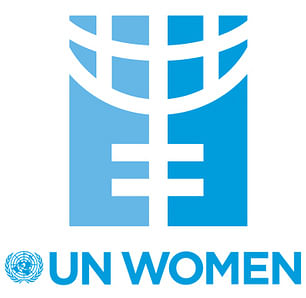Bangladesh elected UN-women vice-president
Bangladesh elected UN-women vice-president

Bangladesh has been elected a Vice-President for the UN-Women Executive Board held at the United Nations Headquarters on Thursday, said a press release issued by Permanent Mission of Bangladesh to the United Nations (UN) today.
The Board governs the operational activities of the UN-Women and provides policy guidance. It engages with Boards and Governing Bodies of other UN entities and creates opportunities for sharing experiences and coordinating operational responses on gender equality and the empowerment of women across the UN.
The UN General Assembly created UN-Women on July in 2010 as part of the UN reform agenda to accelerate the organizational goals on gender equality and women empowerment and ever since Bangladesh has been actively involved in it.
Since its inception, the UN-Women has been supporting inter-governmental bodies, such as the Commission on the Status of Women, in their formulation of policies, global standards and norms. It has also been helping Member States to implement these standards by providing technical and financial supports and forging effective partnerships with member states, NGOs and civil societies.
Electing Bangladesh in this important UN entity is the recognition of its leadership and progress in ensuring social, economic and political empowerment of women.
Since 2009, the government of Prime Minister Sheikh Hasina has been targeting its policies towards removing obstacles for girls' education and women empowerment.
National Women Development Policy was formulated in 2011 to ensure equal rights of women in all strata of life.
Her Government also established gender budgeting to help improving women empowerment, said the press release. The government made girls' education up to grade twelve free and it has started to expand it further up to graduate level.
Stipends and free meals for girls students from poorer families have helped gender parity in primary and secondary schools and helped in reducing dropout rate. In 2014, out of 12.2 million stipend recipients, 75 percent were girls.
The Government has taken measures for providing vocational training to women to create opportunities for their self-employment. Collateral-free loans are being offered to potential women entrepreneurs.
Female workforce has risen from 24 percent to 36 percent in the last three years. About 90 percent of the four million garments workers are female and they have helped Bangladesh truly to be the second largest garments exporting country after China.
Political empowerment of women is not only unique in Bangladesh for the top leadership like Prime Minister, Opposition Leader or the Speaker of Bangladesh Parliament but also more than 14 thousand women have been elected in the local governments.
20 percent members of the Parliament are women. Bangladesh today is the only country in the world that has credit a female Prime Minster, a female Speaker of the Parliament, a female opposition Leader and and deputy leader of the Parliament.
Bangladesh is also a signatory of the UN Convention on the Elimination of All Forms of Discrimination against Women (CEDAW).
Through the election in the UN body, Bangladesh will expedite its endeavors to mainstreaming women empowerment further and can share its experiences and lessons learned with the UN member countries for global empowerment of women.
It is worthy to note that Bangladesh, in 2014, won the elections to 12 international organizations including Chairperson of Commonwealth Parliamentary Association, President of Inter-Parliamentary Union, a member of the CEDAW, a member of the Human Rights Council and an executive member of the International Telecommunication Union.